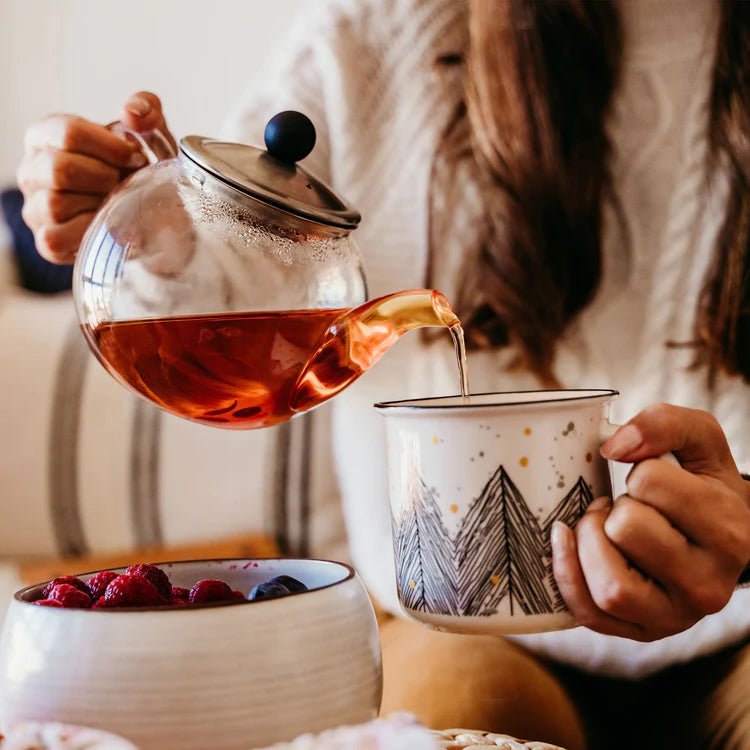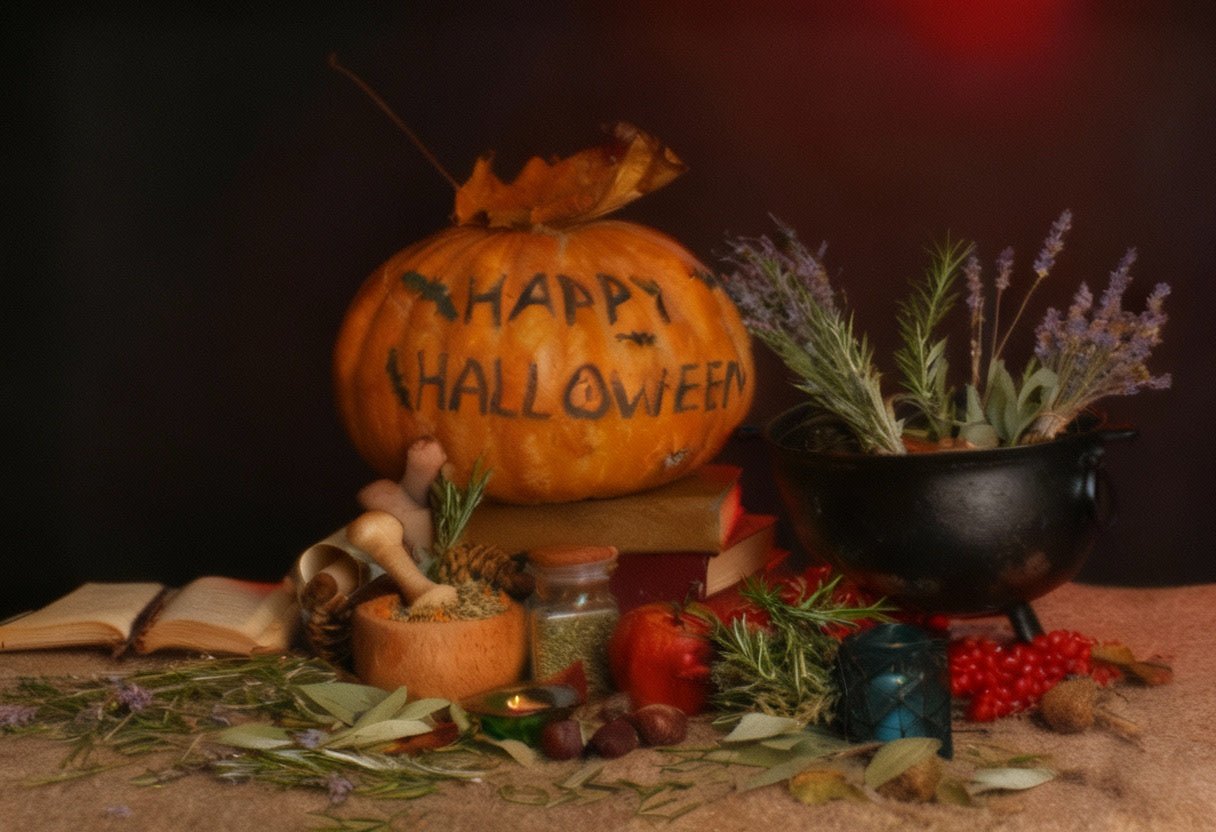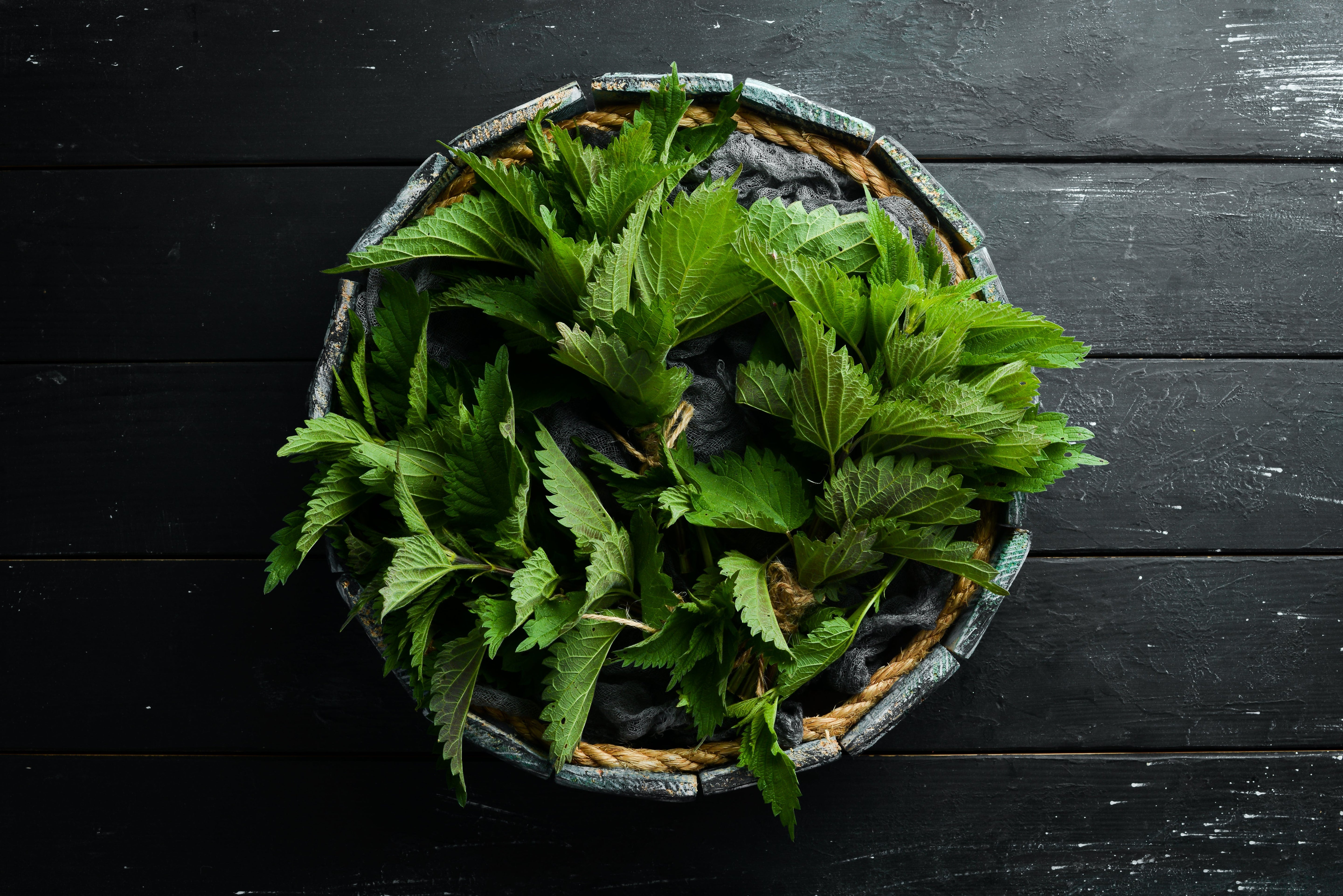5 Herbal Remedies For Insomnia and Anxiety

Despite what many people believe, insomnia and anxiety often go hand-in-hand.
According to Harvard Health Publishing, over 50% of persons who are diagnosed with generalized anxiety disorder are also diagnosed with sleep problems. However, there are vastly big differences between the two disorders!
As one of the most common sleep disorders, insomnia is characterized by having trouble falling asleep, staying asleep or getting a good night’s sleep. An insomniac may also experience a slew of mood problems, such as depression, irritability, general tiredness and anxiety.
Anxiety is a condition where someone may feel fear, dread, uneasiness and worry more than the average person. Being anxious may also cause a person to feel more restless and fatigued. Symptoms like profuse sweating, increased heartbeat and trouble breathing are common.
Both of these problems can significantly impact the nervous system and the brain’s ability to send signals to other parts of the body. Without addressing it, you may experience a poorer quality of life than others.
Fortunately, herbal medicines are making a resurgence.
Plants have been used for centuries to treat these conditions, making them the only natural way to relieve certain symptoms. In recent years, some herbal remedies have been tested on humans to further prove their effectiveness.
These are our top 5 herbs for insomnia and anxiety:
The herbal tea blends featured here all have sedative qualities. Their calming effects can soothe symptoms of insomnia, sleeplessness, anxiety disorders and nervousness.

Photo of Chamomile herbal blend - Biokoma Herbs
Chamomile For Insomnia and Anxiety
Perhaps the most popular on this list, chamomile tea is a household name for all things sleep and anxiety!
In 2019, a review found that people with generalized anxiety disorder saw an improvement in their symptoms after about 2-4 weeks of taking chamomile. Chamomile is considered a great, short-term treatment for anxiety disorders.
A separate study with 60 elderly people was conducted for chamomile’s effects on sleep problems. When given 200 milligrams of chamomile extract per day, it was concluded that their sleeplessness was drastically reduced.
There are countless other studies proving the effectiveness of chamomile on insomnia and anxiety.

Photo of Chamomile (Anthodium chamomillae) Organic Dried Flowers - Biokoma Herbs
Besides treating anxiety and insomnia, here are other benefits of chamomile:
- Relieves flatulence and indigestion;
- Induces sleep as a mild tranquilizer;
- Treats motion sickness and nausea; and
- Reduces nightmares, hysteria and other sleep problems.
Chamomile’s side effects are typically uncommon but mild, including: nausea and dizziness. However, if you are allergic to ragweed, chrysanthemums, marigolds and/or daisies, you may also have trouble taking chamomile tea and supplements.
If those side effects didn’t deter you, you may be interested in shopping for your very own packet of chamomile. Introducing our Chamomile (Anthodium chamomillae) Organic Dried Flowers.

Photo of Lavender herbal blend - Biokoma Herbs
Lavender For Insomnia and Anxiety
Lavender’s soothing effects make it one of the best teas for treating insomnia and anxiety.
Most studies on lavender highlight its effectiveness through aromatherapy, ie: the use of plant oils to give off strong smells for relaxation and healing. However, it has great effects on the body when consumed, too!
In another study on elderly people, researchers set out to find the correlation between lavender tea and sleep. Those with sleep problems were given either 1-2g of lavender as tea. By the end of the study, it was found that this dosage significantly improved their quality of sleep.
Where anxiety is concerned, drinking lavender tea was shown to reduce symptoms typically found in anxiety disorders, including depression in this 2020 study.

Photo of Lavender (Lavandula) Organic Dried Flowers - Biokoma Herbs
There are even more benefits of lavender for sleep and anxiety:
- Lowers adrenaline levels;
- Improves mood and sleep;
- Assists in melatonin production; and
- Reduces agitation, anger and aggression.
Unless the tea is drunk excessively, side effects for lavender tea are often mild: Headaches, constipation and increased appetite.
To reap the benefits of lavender, you can shop for our exclusive Lavender (Lavandula) Organic Dried Flowers here at Biokoma.

Photo of Lemon Balm herbal blend - Biokoma Herbs
Lemon Balm For Insomnia and Anxiety
Known to relieve signs of restlessness, lemon balm is the next best option for those struggling with sleep problems and anxious thoughts.
One study concluded that using lemon balm is effective against dyssomnia - ie: a collection of disorders that affect how long, or how well, someone can sleep.
Children were given a dose of lemon balm to soothe their varying sleep disorders in a 2006 study. Their symptoms saw an improvement of about 70%-80%, confirming its safety and effectiveness as a treatment for all ages.
Another study was conducted on lemon balm’s mood-lifting effects -- Foods containing lemon balm extract significantly improved cognitive performance and mood.
According to the TFEC, one of the known causes of anxiety can boil down to mood. Addressing this could limit feelings of depression, too. Lemon balm is a great way to relieve symptoms of mood swings associated with an anxiety disorder.

Photo of Lemon Balm (Melissae folium) Dried Leaves - Biokoma Herbs
Other benefits of lemon balm include:
- Eases bloating and gas;
- Induces calmness and ease;
- Suppresses insulin resistance; and
- Increases memory, cognitive function and alertness.
A few of the reported side effects from taking lemon balm are: headaches, nausea, vomiting, upset stomach and painful urination.
Some sources recommend using lemon balm for a short period of time. If possible, consider taking it consistently for three weeks, then taking a one week break from this herbal tea.

Photo of Catnip herbal blend - Biokoma Herbs
Catnip For Insomnia and Anxiety
Cats aren’t the only ones who can enjoy using catnip!
While this herb is known globally for its effect on felines, there have been studies to show the positive effects that catnip may have on humans, too.
So, what does catnip tea do for humans?
Catnip is best known for its ability to soothe cats. However, humans have reported feeling that same soothe.
Promoting calmness and relaxation, studies have confirmed that catnip features nepetalactone -- A compound known for its sedative effects! Because of that, catnip is usually taken to address sleep problems like insomnia in humans.
Catnip is also popular for relieving anxiety, restlessness and stress.

Photo of Catnip (Nepeta cataria) Dried Herb - Biokoma Herbs
Besides sedation and anxiety-relief, catnip has other benefits in humans, including:
- Relieve stomach aches;
- Eliminates eating disorders;
- Eases menstrual cramps; and
- Addresses gastrointestinal problems.
One of the most common side effects of catnip is drowsiness. However, this and other side effects tend to be very mild: headaches, heavy perspiration and frequent urination
Pregnant women should avoid drinking catnip tea. Its potency may cause uterine contractions, which may result in premature labor.
Whether you're seeking the soothing effects for yourself or your pet, Biokoma's Catnip (Nepeta cataria) Dried Herb makes for the perfect addition to your routine. It is made from 100% Nepeta Cataria and nothing else! You can see for yourself here.
Goodnight Organic Blend For Insomnia and Anxiety
What if you could reap the benefits of all 4 herbs in a single cup of tea?

Photo of Goodnight Organic Blend - Biokoma Herbs
Made from a combination of chamomile, lavender, lemon balm and catnip, our exclusive Goodnight Organic Blend is a great fix for your sleeping problems and anxiety symptoms.
While anxiety and insomnia both require professional help, the nutrients found in this herbal tea can offer an affordable, short-term option to help remedy your issues.
Be sure to check out the Goodnight Organic Blend on Biokoma exclusively.
Final Thoughts
Insomnia and anxiety are problems that affect 1 in every 3 people worldwide.
Because of this, it’s important to find affordable ways to manage the symptoms that may arise from either disorder.
Fortunately, herbal remedies have been proven to address these (along with so much more). Here are 5 herbs used for treating anxiety and insomnia:
Being the most common tea on this list, Chamomile is known for its treatment in easing symptoms of generalized anxiety disorders. It can also offer mild sedative effects that can lull users to bed. This herbal tea can also reduce nightmares and hysteria associated with sleep disorders.
While it is popular in aromatherapy, Lavender also has strong effects on anxiety! From enhancing the quality of sleep to assisting with melatonin production, it has also improved sleep for insomniac patients. Symptoms like agitation and increased adrenaline make this tea a go-to for anxious people.
Not many herbal remedies can brag about being effective for sleepless children, but Lemon Balm has proven that all age groups can benefit from drinking this blend. Along with improving sleep, Lemon Balm can also induce calmness and soothe the nerves. You can also find relief for anxiety-related mood swings.
Where cats are traditionally the ones using this herb, Catnip has received raving reviews from people across the world. The same soothing effects that our pets feel from rolling around in it, can now be obtained from a warm cup of tea. Relieving anxiety and promoting better sleep are just a few of the benefits.
Regardless of which herb you prefer, all four of them can be found in a single packet. With Biokoma’s Goodnight Organic Blend, you’re able to induce the soothing effects of chamomile, lavender, lemon balm and catnip in a single take. Shop for this exclusive infusion here.
FDA DISCLAIMER
These statements have not been evaluated by the FDA. These products are not intended to diagnose, treat, cure or prevent any disease. No known precautions. We recommend that you consult with a qualified healthcare practitioner before using herbal products, particularly if you are pregnant, nursing, or on any medications.
References:
- https://www.medicalnewstoday.com/articles/320031#:~:text=Chamomile%20tea%20may%20help%20people,may%20also%20improve%20sleep%20quality
- https://www.naturalmentalhealth.com/blog/chamomile-for-calm-and-sleep
- https://www.nccih.nih.gov/health/chamomile#:~:text=Chamomile%20was%20described%20in%20ancient,stomach%2C%20gas%2C%20and%20diarrhea
- https://www.ncbi.nlm.nih.gov/pmc/articles/PMC2995283/#:~:text=Chamomile%20has%20been%20valued%20as,fevers%20in%20children%20(36)
- https://dergipark.org.tr/en/download/article-file/2602395
- https://pubmed.ncbi.nlm.nih.gov/32444033/
- https://www.healthline.com/health/lemon-balm-uses
- https://www.healthline.com/health/catnip-tea#side-effects-and-risks
- https://www.tfec.ca/did-you-know-mood-disorders-and-anxiety-disorders-are-two-differen things/#:~:text=Mood%20disorder%20is%20the%20main,which%20further%20aggrava tes%20anxiety%20disorders






